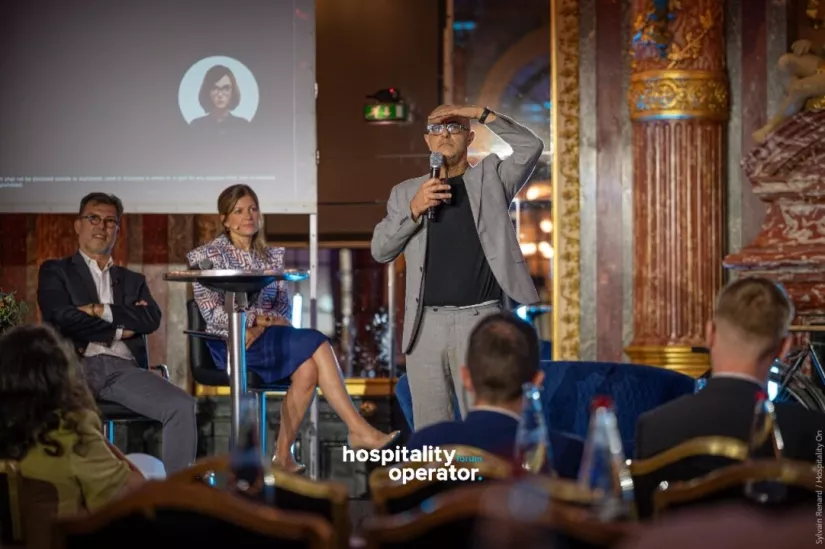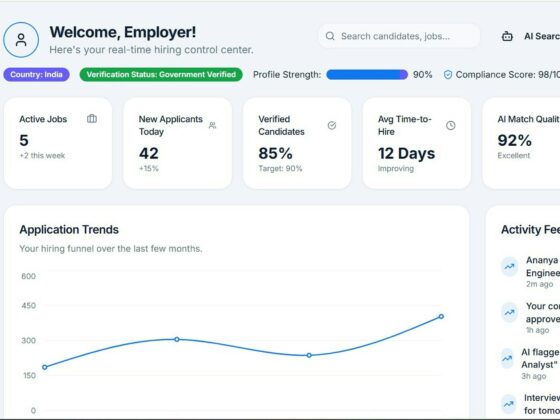
Daniel Doppler: Today, we are going to cover two topics. First, generative artificial intelligence, which you have all heard about in the context of hospitality. I will try to show you that, unfortunately, the promises are not always those we would like to believe. That is the first point.
The second is generative search. That is, all the new forms of search now relying on tools like ChatGPT, Gemini, etc. You will see that these two themes converge.
Let’s start with a definition. Let me introduce you to Velma.
Artificial intelligence can be broken down into two parts: on one side, intelligence itself, and on the other, knowledge.
Intelligence corresponds to cognitive ability: understanding a question, analyzing a subject. Knowledge is the ability to provide an answer, by retrieving information from the right place in memory. What applies to us also applies to AI.
Let’s do a small test: what is the distance between the Earth and the Moon? About 384,000 km. This is a simple example: intelligence is used to understand the question, knowledge to provide the answer.
In hospitality, we hear a lot about AI. But we must distinguish between conversational AI and generative AI. For most people, AI appeared two years ago with ChatGPT. Yet it has existed for much longer. The first AIs go back to Alan Turing, just after the war.
A conversational AI understands a question and goes to retrieve the answer in a database or a library. Whatever the number of formulations, it will always provide the same answer. This is traditional AI, which has existed for more than ten years.
In contrast, a generative AI – like ChatGPT – works differently. It understands the question, scans a set of data, extracts what it deems relevant, combines it with the question, and generates…







